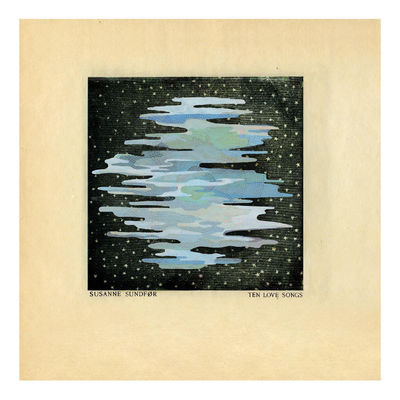With the release of The Brothel in 2010, Susanne Sundfør enacted a revolution on herself. She started working with Jaga Jazzist’s Lars Horntveth and shifted from an existence as a quaint and largely inoffensive singer with an impressive voice, to an artist whose every word and note has gravitas. The foundations changed from basic to expansive and dense. Her melodies became more elaborate and the way she approached them more varied. She did this without compromise. Every album since has been an evolution. The steps have been small but significant. There is much of that feeling on Ten Love Songs, too, though the step this time is perhaps the one that elevates her to another world.
It is more suitable to call many of these tracks movements – as was the case with A Night At Salle Pleyel – rather than songs; and their parts passages rather than "verse" or "chorus". Ten Love Songs is a whole and one which continues the gradual and wonderful journey of Susanne Sundfør. The darker, slower-moving and theatrically voiced aspects that made The Brothel and The Silicone Veil astounding listens are amplified, lengthened and more fleshed out. Now they are different beasts, with greater dynamic variation. Vocally, there is little restraint, but musically Ten Love Songs is littered with orchestral movements which act as a foil for the grandness. These bookend the numerous intense moments, allowing the listener a pause to take in and assess what they’ve just heard, whilst seguing onto the next track. This might be the only way to temper the album’s constant audacity, but it works.
There is a cinematic quality throughout. It is no coincidence that Sundfør leant her voice to the lead track for the Tom Cruise-starring sci-fi flick Oblivion. It might be a slight jump – but no insult – to say that Sundfør has written a few tracks which could easily be James Bond themes, too. ‘Delirious’ is a great example of this, complete with gun-style percussion which pierces the foreground constantly and dramatically. Once more, her voice is the focus. It is a bona-fide pop song, yes, but it sways and morphs shape during the way to another orchestral conclusion.
‘Memorial’ is another; a ten-minute long journey through vocal and compositional talents. First the melody draws you in, before differing orchestral movements and moods take over, as pianos and strings take prominence in a lull. The return of Sundfør’s now-languorous voice is a surprise which brings the epic to a sullen conclusion. Other tracks like ‘Fade Away’ and ‘Kamikaze’ are probably two of the biggest and best pop songs she has written.
With each new album, Sundfør upgrades her sound and slightly modifies her modus operandi. And each time it becomes bigger, the moves braver and the end product more wonderful. Yet, it is still pop music. The centre of her musical universe is her voice. It is powerful enough on its own without any multi-tracking, but there is an awful lot of that, too. Around it are formed items of increasing and varying complexity, ebbing and flowing. But the core remains. It is a worthless task to try and work out exactly what Sundfør practices, beyond an extreme form of uncompromising pop. But, for now, we can be grateful for the fact that she simply exists.
<div class="fb-comments" data-href="http://thequietus.com/articles/17271-susanne-sundfr-ten-love-songs-review” data-width="550">


